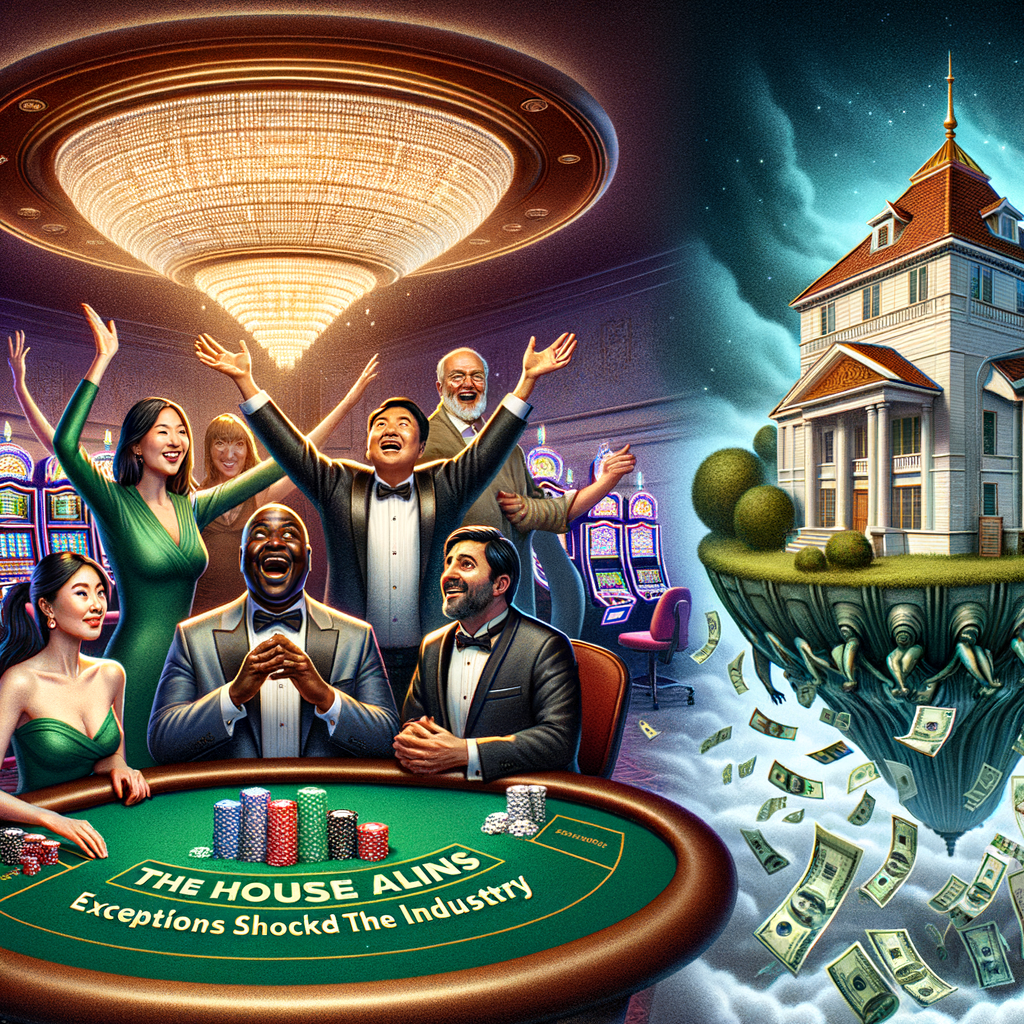The Unyielding Casino: How the House Maintains Its Edge
In the world of gambling, the phrase "The House always wins" is often echoed among players. This adage stems from the inherent mathematical advantage that casinos hold in most games. The house edge is the statistical advantage that casinos possess over their players, which guarantees profitability in the long run. Every game is meticulously designed with rules and odds that favor the casino, whether it be slots, blackjack, or roulette. For instance, in American roulette, the presence of both a "0" and "00" gives the house a 5.26% advantage, which is a significant edge over players betting on red or black.
Casinos employ various strategies to maintain this edge. One of the primary methods is the careful design of games to ensure that players cannot easily exploit rules or strategies to their benefit. For example, in blackjack, while players can use strategies like card counting, casinos have implemented measures such as shuffling more frequently or using multiple decks to dilute the effectiveness of such tactics. Additionally, casino environments are crafted to encourage more prolonged gambling behavior—think of the absence of clocks, the free drinks, and the vibrant, enticing atmosphere designed to keep players engaged.
Moreover, the psychological aspects of gambling play a crucial role in maintaining the house’s advantage. Gamblers often fall victim to cognitive biases, such as the illusion of control or the gambler’s fallacy, which can lead to irrational betting behaviors. With players more focused on the thrill of the game rather than the odds, casinos can effectively capitalize on these tendencies, ensuring a steady flow of revenue. This blend of mathematical rigor, strategic design, and psychological manipulation creates an environment where the house consistently retains its edge.
| Game Type | House Edge (%) | Player Strategy Impact |
|---|---|---|
| Slots | 2.5 – 15 | Minimal |
| Blackjack | 0.5 – 2 | High (card counting) |
| Roulette (American) | 5.26 | Low (fixed odds) |
| Baccarat | 1.06 – 1.24 | Moderate (betting trends) |
| Craps | 1.41 – 16 | Varies widely (bet type) |
Surprising Upsets: Notable Exceptions in Gaming History
Despite the stronghold that casinos have over the gaming industry, there have been remarkable instances where players have not only beaten the odds but have left a significant mark on casino history. One of the most famous examples is the case of Edward Thorp, a mathematics professor who revolutionized card counting in blackjack. Thorp’s strategic approach to card counting, detailed in his book "Beat the Dealer," allowed him and his followers to win millions in Las Vegas in the 1960s. His methods were so effective that they forced casinos to adapt their rules and implement measures to counter card counting.
Another notable instance occurred in 2011 when a group of gamblers known as the "MIT Blackjack Team" used sophisticated strategies and teamwork to win over $3 million from various casinos in Las Vegas and Atlantic City. The team included mathematically gifted students who employed Thorp’s principles and developed a structured approach to betting based on the count of the cards. Their impressive run lasted for several years and demonstrated that with the right skill set and strategy, players could indeed reap substantial rewards from the house.
Lastly, the 2015 World Series of Poker (WSOP) showcased an incredible feat when amateur player Joe McKeehen won the tournament, claiming the coveted bracelet and a grand prize of over $7 million. While it’s common for professional players to dominate such events, McKeehen’s victory highlighted that exceptional skill and a bit of luck can tilt the scales in favor of the player, defying the conventional wisdom that casinos and professional players hold all the cards. These instances serve as a reminder that while the house typically wins, there are exceptions that continue to astonish and inspire gamblers everywhere.
Q&A Section
Q: Why does the house always have an edge in casino games?
A: The house edge is built into the rules of the games, ensuring that, over time, casinos will make a profit. This edge varies by game and is calculated based on the odds and payouts.
Q: What is card counting, and can it help players win?
A: Card counting is a strategy used in blackjack to keep track of the ratio of high to low cards remaining in the deck. While it can increase a player’s chances of winning, casinos take measures to counteract it.
Q: Are there any games where the player can have the advantage?
A: In some cases, such as poker, players compete against each other rather than the house, which can allow skilled players to have an edge. Additionally, certain betting strategies in games like blackjack can reduce the house edge significantly.
Q: How do casinos prevent players from winning too much?
A: Casinos employ various tactics, including altering game rules, monitoring player behavior, and using technology to track betting patterns, all designed to maintain their advantage.
Q: Can a lucky streak really happen at a casino?
A: While individual players can experience winning streaks, the odds favor the house in the long term. Luck can play a role in the short term, but statistically, the house edge prevails over time.




Comments